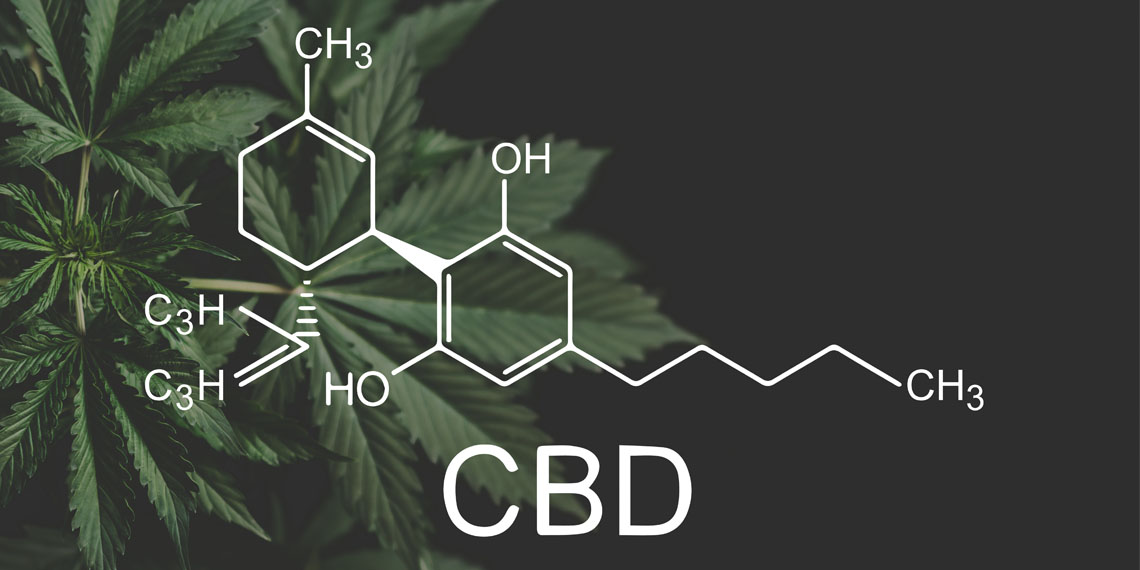In a new study published in Brain, Behavior, and Immunity, researchers have found that cannabidiol, a compound derived from cannabis, can significantly reduce symptoms resembling post-traumatic stress disorder (PTSD) in mice. This effect hinges on cannabidiol’s ability to curb neuroinflammation through its interaction with specific receptors in the brain, known as CB2 receptors. These findings offer promising avenues for new PTSD treatments and underscore the potential of targeting the brain’s immune response to manage psychiatric disorders.
PTSD is a severe mental health condition triggered by traumatic events such as war, natural disasters, and personal assaults. It affects millions of people worldwide and can lead to debilitating symptoms like flashbacks, anxiety, and depression. Current treatments, including selective serotonin reuptake inhibitors (SSRIs) like sertraline and paroxetine, often fail to provide sufficient relief for many patients. Given the need for more effective therapies, researchers have been exploring the role of neuroinflammation in PTSD and how it might be targeted to alleviate symptoms.
Recent studies suggested that CBD, a non-psychoactive component of Cannabis sativa, has potential therapeutic effects on PTSD, possibly through its interaction with the endocannabinoid system. However, the exact mechanisms, particularly its impact on neuroinflammation, remained unclear.
To understand how CBD might help alleviate symptoms of PTSD, the researchers conducted experiments on mice, using a series of stress-inducing procedures to create a state that mimics PTSD in humans. These procedures included placing the mice in confined spaces, making them swim in water, exposing them to an anesthetic, and giving them mild electric shocks. This combination of stressful experiences was designed to trigger behaviors and brain changes similar to those seen in people with PTSD.
After inducing PTSD-like symptoms in the mice, the researchers divided them into different groups to test the effects of CBD. They administered CBD in three different doses to some of the mice (3, 10, and 30 mg/kg), while others received sertraline, a common medication used to treat PTSD in humans. Another group of mice was given a placebo treatment for comparison. The researchers then observed the behavior of these mice through a series of tests that measured their fear responses, anxiety levels, memory, and depression-like behaviors.
The mice that were treated with CBD showed significant improvements in their behavior. For instance, they spent less time frozen in fear when placed in a familiar environment where they had previously received shocks. This indicated a reduction in fear and anxiety. They also spent more time exploring open areas in a maze, suggesting they felt less anxious. Additionally, the CBD-treated mice performed better in memory tests and showed fewer signs of depression, such as reduced immobility when suspended by their tails.
Beyond observing behavioral changes, the researchers examined the brains of the mice to understand how CBD was affecting them on a cellular level. They discovered that the stress procedures had increased the number of immune cells in the brain, specifically microglia and macrophages, which are typically involved in inflammatory responses.
These immune cells had changed in ways that indicated prolonged inflammation in the brains of the stressed mice. However, treatment with CBD did not reduce the number of these cells but instead restored them to a less reactive state, indicating that CBD was effectively reducing brain inflammation by altering the activity of these cells.
Moreover, the researchers found that CBD influenced the levels of certain molecules associated with inflammation. In the stressed mice, there was an increase in molecules that promote inflammation, such as tumor necrosis factor-alpha, interleukin-1 beta, and CD32. CBD treatment reduced these levels. Conversely, CBD increased the levels of molecules that help reduce inflammation and promote healing, such as CD206 and chitinase-like proteins. These changes were particularly notable in the hippocampus, a brain region involved in emotion and memory regulation.
A particularly significant finding was the role of a specific type of receptor in the brain, known as cannabinoid type 2 receptors (CB2 receptors). These receptors are part of the endocannabinoid system, which plays a key role in regulating immune responses and inflammation.
The researchers found that CBD’s beneficial effects were linked to its action on these CB2 receptors. They discovered that stressed mice had altered levels of CB2 receptors, but treatment with CBD increased these levels. This increase in CB2 receptors was associated with reduced inflammation and improved behavioral outcomes in the mice.
To further investigate this, the researchers used a CB2 receptor antagonist to block these receptors in some mice before administering CBD. They found that when the CB2 receptors were blocked, the positive effects of CBD on reducing PTSD-like symptoms and brain inflammation were significantly diminished. This demonstrated that the CB2 receptors play a crucial role in mediating the anti-inflammatory and therapeutic effects of CBD.
While these findings are promising, it is important to note that this study was conducted in mice. Animal models, although valuable, do not fully replicate human PTSD, and results may not directly translate to human patients. Further research is needed to confirm these effects in humans and to understand the long-term safety and efficacy of CBD for PTSD treatment.
The study, “Cannabidiol ameliorates PTSD-like symptoms by inhibiting neuroinflammation through its action on CB2 receptors in the brain of male mice,” was conducted by Guanbo Xie, Xinwei Gao, Qingchun Guo, Haizhen Liang, Lan Yao, Wenjuan Li, Baiping Ma, Ning Wu, Xiao Han, and Jin Li.




